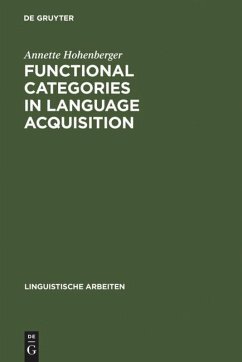

Most ebook files are in PDF format, so you can easily read them using various software such as Foxit Reader or directly on the Google Chrome browser.
Some ebook files are released by publishers in other formats such as .awz, .mobi, .epub, .fb2, etc. You may need to install specific software to read these formats on mobile/PC, such as Calibre.
Please read the tutorial at this link: https://ebookbell.com/faq
We offer FREE conversion to the popular formats you request; however, this may take some time. Therefore, right after payment, please email us, and we will try to provide the service as quickly as possible.
For some exceptional file formats or broken links (if any), please refrain from opening any disputes. Instead, email us first, and we will try to assist within a maximum of 6 hours.
EbookBell Team

5.0
50 reviewsThis study investigates the acquisition of Functional Categories from the perspective of self-organization. Syntax emerges through a major bifurcation of the dynamical language system. Dynamical notions such as precursor, oscillation, symmetry-breaking, and trigger are explanatory tools for the dynamics of early child language as evidenced in the acquisition of compounding, case-marking, finiteness, V2, wh-questions, etc. The book addresses researchers from various theoretical camps: generative, functional, connectionist, by giving new answers to old questions in the light of a novel challenging theory: self-organization.